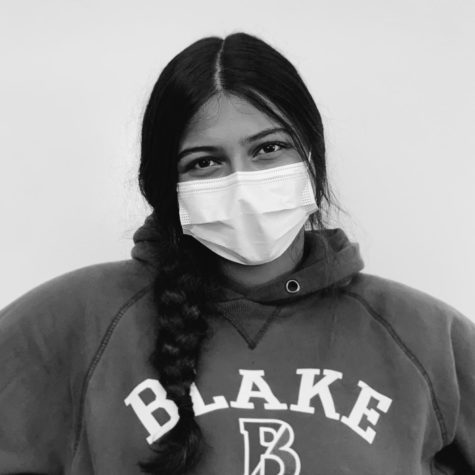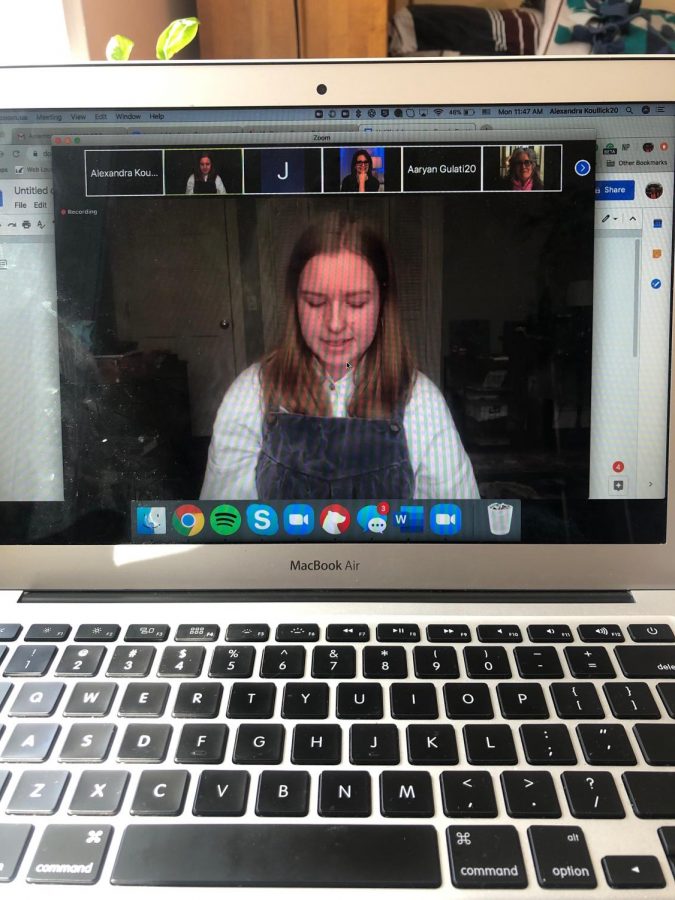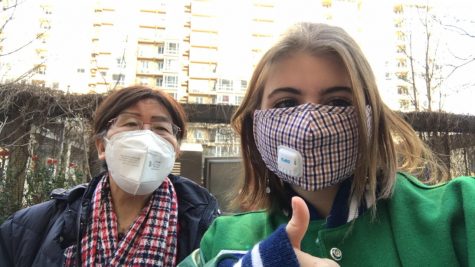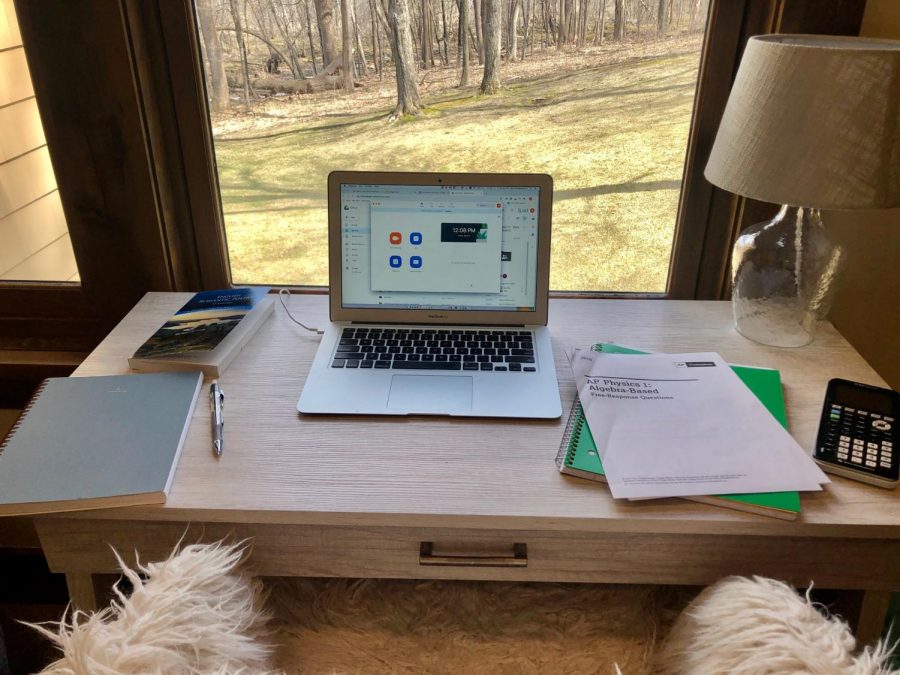Carter Puckett delivers her senior speech from home rather than from the podium in the Juliet Nelson Auditorium.
Online Schooling Brings Change to Long-standing Speech Tradition
Senior speeches take new form online as community is unable to congregate in the building
In the midst of a transition into uncharted territory, senior speeches have still found a way to create a sense of community, thrive, and stay beneficial to audience members. At first glance, changing from in-person to online speeches seemed saddening for many seniors. However, Sandy Berkowitz and the remaining seniors’ speeches proceed with less technical difficulties, and the opportunity for a wider range of audience members from the whole Blake community.
Senior Joe Gustaferro ‘20–one of the first to present his speech during the virtual assembly–had envisioned giving his speech in the Juliet Nelson Auditorium (JNA) all of high school. “[He] never envisioned giving [his] senior speech this way.” Gustaferro states, “We’ve all seen a lot of technical difficulties in assemblies before, and someone in my advisory said that she thought it was one of the fewest assemblies with the fewest technical difficulties ever. I didn’t see any issues with it.” With the shift to online learning, senior speeches are having little to no difficulties, shifting away from the ever-present awkwardness of speech delivery.
The scariest part of it for senior Carter Puckett ‘20 was looking down at the bar below, reading about 560 people on the zoom call. In Puckett’s opinion, the experience for her was not the same as giving it in the JNA, but “one of [her] teachers sent [her] an email afterwards saying somehow being in the privacy of my own room it made it more intimate and more powerful.” Puckett states, “I thought that was a cool way of putting it because I did think it added something, a little more special to it than maybe it would’ve been [with] me standing at the podium.”
Is Online School Effective?
Students and teachers share their insight on RTLP and Zoom classes
“It’s the perfect iceberg analogy,” says freshmen dean Jen Vance, when discussing online school. Instead of seeing each other’s full selves, students and faculty are now seeing each other through rectangles on their computer screen, often muted, with a corner of their house in the background. Online school has brought new challenges, but despite these, students recognize its effectiveness, as well as the faculty’s efforts.
Some of these new challenges are especially pertinent in discussion-based classes because of the new format. Yeukai Zimbwa ‘20 shares, “I think that for the discussion-based classes, it’s a little bit harder because maybe for the first 10 minutes everybody’s still joining and stuff and then by the time we start really getting into a discussion, the class is over.”
Similarly, Samrat Pradhan ‘21 expresses, I think the biggest challenge is that you don’t have that ability to ask questions in greater depth because you don’t really have that much time […] with teachers, and you also can’t talk to your friends as much as you could normally.”
However, both Pradhan and Zimbwa are able to see the benefits of online school. Pradhan claims, “for other classes, I think it is effective, like for math, for example, I think I am learning a lot because I think it’s really structured, and also for AP Euro it’s pretty useful.”
Aside from the format of the classes, students are adjusting to their newfound freedom, finding it to have both positives and negatives. Margaret Walker ‘22 says, “It’s really hard to not be at physical school with people and also just to not have a lot of structure in the day. My productivity levels have gone pretty far down, so that’s been difficult, but I’ve been enjoying being at home and seeing my family more, and again the free time.”
Additionally, students are finding it hard to have classes that are only 30 minutes long. Despite the fact that “it is good that we’re not on our computers too much,” Walker states that “it is hard to only have 30 minutes of class twice a week, whereas we would have an hour almost every day.”
Vance sheds light on the process of deciding the 30 minute classes saying, “I think we landed on 30 minutes thinking about attention span time, what kinds of things need to happen in that time frame, and how can we navigate this where kids are still having downtime, but we’re meeting with them…we want it to be sustainable, so I think we all felt like going for a 55 minute is probably way too long.”
Pradhan responds to the duration of classes saying, “I feel like we should have longer Zoom classes. Like we have these 15 minute breaks and I don’t know what to do for that period of time, so I feel like they could make [classes] like 5 or 10 minutes longer because then you could be more productive and learn more because 10 minutes makes a big difference.”
Speaking to these unprecedented circumstances Vance says that the administration is focusing on, “how can we create a system that’s going to keep our academic program strong and challenge students, but also recognize that there has to be some flexibility because everybody has got all this other stuff they’re trying to manage.”
Additionally, regarding the results of the RTLP feedback survey, Vance shares, “I think if there are trends that we’re seeing in feedback…we would make adjustments, and again, really keeping the two priorities of managing our community and the academic program at the forefront and also trying to keep things manageable. I do really think that getting a handle on the broader experience will help us.”

Hey! I’m Noor, I’m a senior, this is my second semester as an Editor-in-Chief, and I'm currently a features editor. I've edited News, Sports, Sci-tech,...






















